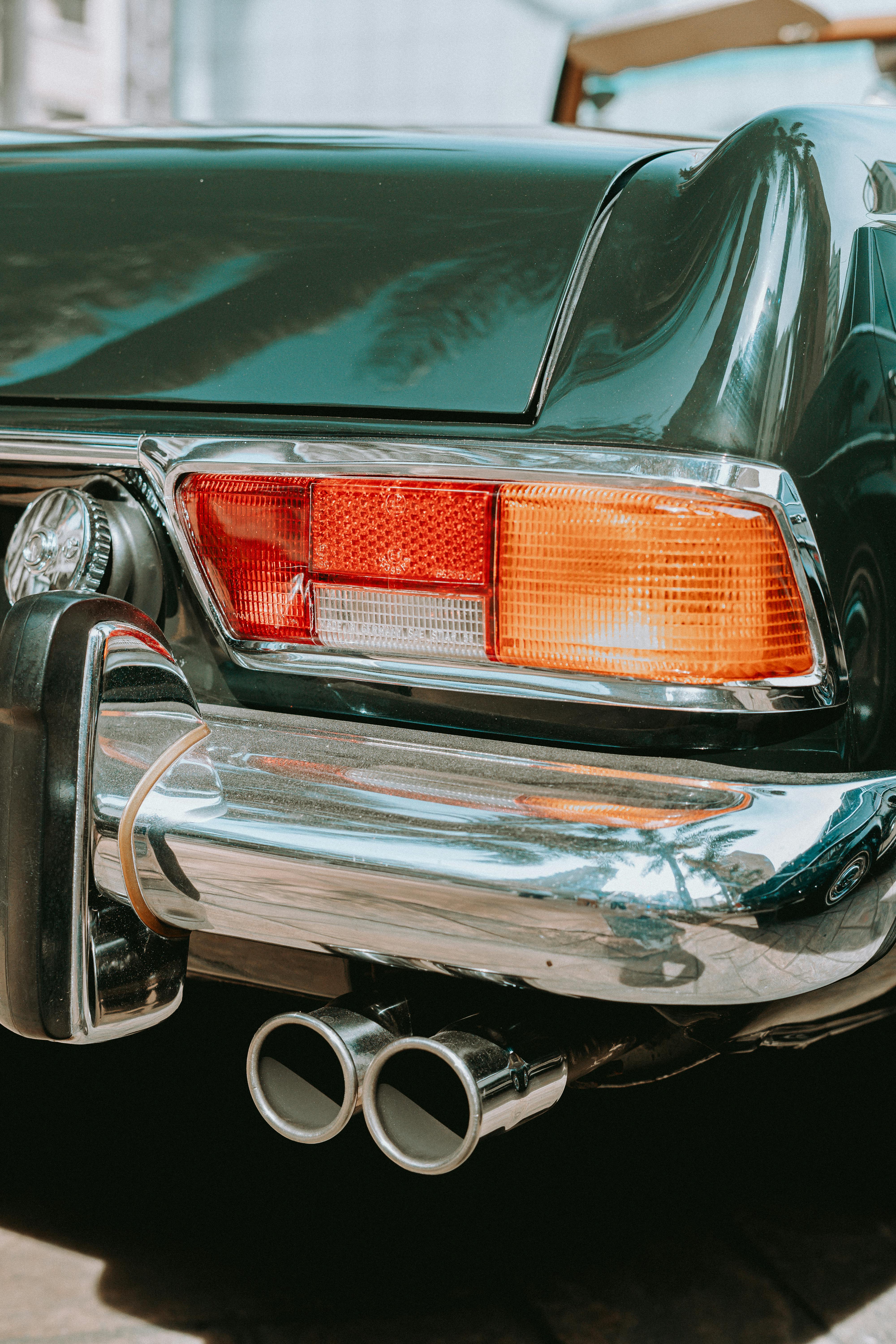So you’ve been involved in a car accident, and now you’re wondering what to do next. Don’t worry, we’ve got you covered! In this article, we will guide you through the necessary steps to take after a car accident, ensuring that you have the knowledge and resources to handle the situation effectively. From gathering information at the scene of the accident to contacting insurance companies and seeking legal advice, we’ll provide you with all the necessary information to navigate the aftermath of a car accident smoothly. Stay tuned for expert advice and practical tips to ensure that you are well-informed and prepared for any potential challenges that may arise. Don’t hesitate to reach out to a professional car accident lawyer if you need assistance along the way.
What to Do After a Car Accident
1. Gather Information at the Scene
1.1 Exchange Information with the Other Driver
After a car accident, it is crucial to gather important information from the other driver involved. Make sure to exchange contact details such as names, phone numbers, and addresses. Also, collect information about their insurance provider and policy number. This information will be vital when filing an insurance claim and seeking compensation for damages.
1.2 Take Photos and Document the Scene
Take photographs of the accident scene from different angles, capturing the position of the vehicles, any visible damages, and any contributing factors such as road conditions or traffic signals. Additionally, make notes about the time, date, and location of the accident. These visual and written records will serve as valuable evidence during the claims process.
1.3 Gather Witness Information
If there are any witnesses present at the scene, collect their contact information as well. Witness statements can provide crucial support for your case, as they can attest to the events leading up to and following the accident. Their unbiased accounts can strengthen your claim and help establish liability.
2. Seek Medical Attention
2.1 Assess Injuries and Call for Medical Help
Your health and well-being should be the top priority after a car accident. Assess yourself and others involved for any injuries. If anyone requires immediate medical attention, call for an ambulance right away. Even if you think your injuries are minor, it is still advisable to seek medical help to ensure there are no hidden or delayed symptoms that could arise later.
2.2 Keep Track of Medical Records
Be diligent about keeping track of all medical records and documentation related to your injuries. This includes doctor’s notes, test results, medical bills, and receipts for medications or treatments. These records will not only aid in your recovery but will also be crucial when pursuing compensation from the at-fault party or your insurance company.
2.3 Consult with a Personal Injury Doctor
It is essential to consult with a personal injury doctor who specializes in car accident injuries. These professionals are experienced in diagnosing and treating injuries commonly associated with car accidents, such as whiplash, back pain, or concussions. Seeking their expertise will ensure that you receive the necessary medical care and support your case with expert opinions.

3. Contact the Authorities
3.1 Call the Police
Regardless of the severity of the accident, it is crucial to contact the police and report the incident. The police report will serve as an official document that outlines the details of the accident, including the parties involved, statements from witnesses, and any applicable citations or violations. This report will be valuable evidence when dealing with insurance companies or legal proceedings.
3.2 File an Accident Report
In some jurisdictions, it may be necessary to file an accident report with the local department of motor vehicles or appropriate government agency. This report acts as an official record of the incident and is typically required for insurance purposes. Familiarize yourself with the specific requirements in your jurisdiction to ensure compliance.
3.3 Cooperate with Law Enforcement
When the police arrive at the accident scene, cooperate fully with their investigation. Provide them with accurate and truthful information about the accident. Answer their questions to the best of your ability and avoid speculating or making assumptions. Remember that the police report and their findings will play a significant role in the claims process.
4. Contact Your Insurance Company
4.1 Notify Your Insurance Agent
In the aftermath of a car accident, it is important to notify your insurance company promptly. Contact your insurance agent or provider and inform them about the incident. They will guide you through the claims process and provide you with necessary instructions and forms to complete. Timely notification is crucial to ensure that your claim is processed efficiently.
4.2 Provide Accurate Information
When dealing with your insurance company, always provide accurate and honest information. This includes details about the accident, injuries sustained, and any damages to your vehicle or property. Misrepresenting the facts can lead to complications in the claims process and potentially a denial of your claim. Be cooperative and forthcoming with all requested information.
4.3 Understand Your Policy Coverage
Take the time to review your insurance policy and understand the specific coverage you have for car accidents. Familiarize yourself with the deductible amount, liability limits, and any additional benefits or endorsements that may apply. Understanding your policy will help you navigate the claims process effectively and ensure that you receive the compensation you are entitled to.
5. Preserve Evidence
5.1 Keep Your Damaged Vehicle in Storage
If your vehicle is severely damaged, it may need to be towed to a storage facility or auto repair shop. Preserve the vehicle in its damaged condition until the insurance adjuster has had an opportunity to assess the damages. Altering or repairing the vehicle before the evaluation can complicate the claims process and potentially affect the amount of compensation you receive.
5.2 Preserve Physical Evidence
Preserving physical evidence is essential in proving fault and demonstrating the extent of damages. Keep any damaged parts or components of your vehicle, such as broken mirrors or bent fenders. Additionally, retain any physical evidence from the accident scene, such as debris or skid marks. These items can serve as valuable evidence when determining liability.
5.3 Document Property Damage
In addition to your vehicle, take detailed photographs of any property damage resulting from the accident. This can include damage to personal belongings or structures in the vicinity of the accident, such as fences or mailboxes. Documenting property damage will strengthen your claim and ensure that you are adequately compensated for all losses.
6. Obtain Legal Representation
6.1 Consult with a Car Accident Lawyer
After a car accident, it is often beneficial to consult with a car accident lawyer who specializes in personal injury cases. They can provide you with expert legal advice, evaluate the strength of your case, and guide you through the complex legal process. A car accident lawyer will advocate for your rights, negotiate with insurance companies, and help you pursue fair compensation.
6.2 Understand Your Rights and Options
A car accident lawyer will help you understand your rights and options in seeking compensation. They will explain the applicable laws and regulations, such as the statute of limitations for filing a claim. Furthermore, they will assess the viability of pursuing legal action and advise you on the potential outcomes and risks involved.
6.3 Hire an Experienced Lawyer
When selecting a car accident lawyer, it is crucial to hire an experienced professional who has a proven track record in handling similar cases. Look for a lawyer who specializes in personal injury law and has a deep understanding of car accident claims. They will have the knowledge and expertise to navigate the legal system on your behalf and ensure the best possible outcome for your case.

7. Document the Accident
7.1 Keep a Detailed Record of Events
Maintain a detailed record of all events related to the accident. This includes documenting conversations with insurance representatives, law enforcement officials, and medical personnel. Keep a journal or use a dedicated notebook to record important dates, times, and details. Having a comprehensive account of the accident will help you recall important information and support your case.
7.2 Preserve Medical Bills and Expenses
Keep all medical bills and records of expenses related to your injuries and treatment. This includes hospital bills, invoices from doctors or specialists, prescription costs, rehabilitation fees, and any other expenses incurred due to the accident. These documents will provide evidence of your financial losses and the impact the accident has had on your daily life.
7.3 Organize Correspondence with Insurance
Maintain organized records of all correspondence with your insurance company. This includes emails, letters, and any other forms of communication. Create a file specifically for insurance-related documents and keep them in a safe and accessible place. This organization will allow you to easily refer to and locate important information when needed.
8. Negotiate with Insurance Companies
8.1 Understand the Insurance Claims Process
Educate yourself about the insurance claims process to navigate it effectively. Familiarize yourself with the steps involved, the timelines, and the documents required. Understanding the process will enable you to communicate confidently with insurance adjusters and negotiate for fair compensation. A car accident lawyer can provide guidance and support throughout this process.
8.2 Be Cautious of Early Settlement Offers
Insurance companies often make early settlement offers to minimize their liability and close the claim quickly. Be cautious when considering these offers, as they are typically lower than what you may be entitled to. It is advisable to consult with a car accident lawyer before accepting any settlement. They can evaluate the offer and negotiate on your behalf to ensure you receive fair compensation.
8.3 Seek Legal Advice Before Accepting
Before accepting any settlement offer from an insurance company, seek legal advice from a car accident lawyer. They will evaluate the offer in light of your case’s potential value and advise whether it is in your best interest to accept or pursue further compensation. They will protect your rights and ensure that you receive the maximum possible settlement.

9. File a Lawsuit, if Necessary
9.1 Assess the Viability of a Lawsuit
If a fair settlement cannot be reached through negotiation, filing a lawsuit might be necessary to seek the compensation you deserve. Consulting with a car accident lawyer will help you assess the viability of a lawsuit. They will evaluate the evidence, the strength of your case, and the potential outcomes. A lawsuit should be pursued if it is the best avenue to secure fair compensation.
9.2 Gather Additional Evidence
If you decide to file a lawsuit, work closely with your car accident lawyer to gather any additional evidence that may strengthen your case. This can include obtaining expert testimonies, conducting further investigations into the accident, and collecting additional documentation or witness statements. Your lawyer will guide you in building a strong case to present in court.
9.3 Initiate Legal Proceedings
Once you have gathered sufficient evidence and prepared your case, your car accident lawyer will initiate legal proceedings on your behalf. They will navigate the court system, adhere to all procedural requirements, and advocate for your rights. By having an experienced lawyer by your side, you can be confident that your case is being handled professionally and effectively.
10. Pursue Compensation
10.1 Determine the Value of Your Claim
Determining the value of your claim requires a careful assessment of various factors, including medical expenses, property damage, loss of income, pain and suffering, and any future financial needs resulting from the accident. Your car accident lawyer will work with you to calculate the appropriate compensation amount based on these factors and the specifics of your case.
10.2 Document Financial Losses
Continue to document any ongoing financial losses resulting from the accident. Keep track of missed work days, reduced earning capacity, and any expenses incurred due to ongoing medical treatment or therapy. These financial losses should be accounted for when seeking compensation from the at-fault party or their insurance company.
10.3 Negotiate for Fair Settlement
With the assistance of your car accident lawyer, negotiate with the responsible party’s insurance company or legal representation for a fair settlement. Your lawyer will leverage their expertise and knowledge of personal injury law to advocate for your best interests. They will work diligently to secure a settlement that adequately compensates you for your injuries, damages, and losses.
Frequently Asked Questions
-
Will hiring a car accident lawyer guarantee a higher settlement? Hiring a car accident lawyer does not guarantee a higher settlement, but it significantly increases the likelihood of receiving fair compensation. Lawyers specializing in car accidents possess the necessary expertise and negotiation skills to maximize your claim’s value.
-
Can I handle the insurance claims process on my own? While it is possible to handle the insurance claims process on your own, it is not advisable. Insurance companies have teams of adjusters and lawyers whose goal is to minimize payouts. Having a car accident lawyer in your corner ensures your rights are protected, and you have a strong advocate fighting for your best interests.
-
How long do I have to file a lawsuit after a car accident? The time limit to file a lawsuit after a car accident, known as the statute of limitations, varies by jurisdiction. In Utah, for example, the statute of limitations for personal injury claims is typically four years. However, it is crucial to consult with a car accident lawyer to understand the specific timeframe that applies to your case.
-
What if I was partially at fault for the car accident? If you were partially at fault for the car accident, you may still be eligible to receive compensation, depending on the laws in your jurisdiction. Consult with a car accident lawyer to understand how comparative negligence laws apply to your case and how they may affect your potential compensation.
-
How much does it cost to hire a car accident lawyer? Most car accident lawyers work on a contingency fee basis, which means they only get paid if they successfully secure a settlement or win your case in court. The fee is typically a percentage of the compensation awarded, agreed upon in advance. During your initial consultation, discuss the fee structure with your lawyer to ensure clarity and transparency.